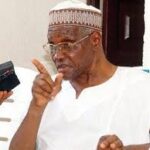On the 20th November, some of us were invited by the Presidential Committee on the National Conference or Dialogue to share perspectives on their work. I used the occasion to draw attention to historical signposts and theoretical perspectives that have coloured the Nigerian debate and become political booby traps.
The origins of the national conference lie with our neighbours, Benin Republic. Throughout 1989, workers, students and other popular forces were protesting against the monopoly of the state power by the Kérékou clan. The country was facing a fiscal crisis as the state could no longer pay salaries and a significant percentage of the elite had immigrated. In the search for political peace and reconciliation, the government called the Conference in February 1990 with an agenda of promoting political reform and creating a national consensus that would allow the country face the challenge of social and economic crisis.
The first decision of the 500 delegates invited to the Conference however was to declare its independence from the government project and proclaim the sovereign character of its decisions over the state. In other words, the conference carried out a coup. The stage was set for the decomposition of the regime as the Conference successfully threw out the Government, which was easy because the military high command and the administrative cadre were in the Conference and supported the actions taken. Following that event, the national conference became a politically infectious event especially in Francophone Africa.
The emergence of the idea of declaring the National Conference in Benin Republic sovereign was to a large extent fortuitous. Throughout 1989, the French Government organized a massive celebration of the bicentenary of the French Revolution. Hundreds of books were published and numerous radio and television programmes were produced on the event, not only in France but also throughout Francophone Africa to tell the story of the French revolution of 1789.
The gist was that the French King, King Louis the 16th was no longer able to govern a pauperised France that could not pay its bills. His solution was a massive increase in taxes. To his shock, even his core supporters, the nobility and the clergy felt they could not support the proposed additional burden. In desperation, he called a national conference (estates general) to convince them. To create legitimacy for the national conference, each estate was allowed to elect its representatives to the conference of 1200 delegates – 300 to the first estate, the nobility, 300 for the second estate, the clergy and 600 to the third estate, the commoners, which included the rising bourgeoisie. Each estate was asked to prepare their charter of demands, (cahiers de doleances), for the conference and then issues would be resolved.
When the conference opened on 5th May 1789, it becomes bogged down on a procedural issue. The ruling classes, the nobility and the clergy argued that votes on the “cahiers de doleances” should be by estate. The third estate refused sensing that the nobility and the clergy will always gang up to out vote them. The commoners therefore argued that decisions should be by individual vote, they had 50% of the conference and knew some of the clergy will vote with them.
The procedural issue could not be resolved. In frustration and anger, the third estate, the commoners, declared that they were the grand majority of the population, they rejected the appellation of “third estate”, they declared themselves the National Assembly of the French People and declared the sovereignty of French citizens and announced that whatever they decided is the sovereign wish of the French citizens. Louis the 16th was not his grand father, Louis the 14th who had declared that “L’Etat c’est moi” – I am the state. The king was rattled and afraid of a civil war and accepted the declaration in a gesture of compromise.
This compromise cost him his life. The “Declaration of the Rights of Man and the Citizen” was made, and poor Louis the 16th had his precious head sliced off on the guillotine. These world-shattering events led to the abolition of privileges, the assertion of the legitimacy of representative institutions, the rule of law etc. We should not however forget that it also led to systematic repression and state terrorism. The revolution having consumed the royalty and seized all the property of the Catholic Church to pay for debts of the State turned on the revolutionary leaders and then on the ordinary people. The revolution consumed all its children and a diminutive general; Napoleon Bonaparte arose to establish a new dictatorship. This was the narrative that inspired the Benin National Conference under the leadership of the Catholic Arch Bishop to support the idea of the declaration of a sovereign national conference.
Since Benin, the National Conference has led to the overthrow of dictatorial regimes only in Niger and Congo Brazzaville. In Gabon, Zaire, Togo, Democratic Republic of the Congo and Cote d’Ivoire, the ruling oligarchies were able to manipulate the National Conference or ignore its injunctions and maintain itself in power despite the installation of multipartism. Even the more successful democratic transitions in Congo Brazzaville and Niger were subsequently reversed by military coups orchestrated by forces that have a stake in the return to authoritarianism.
The Nigerian debate about the convening of a national conference has been inspired by the struggle against military rule. Indeed, in 1990, Nigerians tried to organize a workshop at the National Theatre in Lagos to plan our own National Conference but the security agents of the Babangida Dictatorship dispersed the event. The reality on the ground however is that since 1990, the demands for a sovereign national conference in Nigeria has not abated. One of the key promoters of the discourse was Professor Julius Ihonvbere who used his position as programme officer at the Ford Foundation in New York to sponsor many conferences on the necessity for the sovereign national conference. The erudite professor however eventually joined government as special adviser to President Obasanjo and then saw the light. When the context changes, your demands should change he argued:“You cannot take the same demands you make of a military government and make them on a democratically elected government. For example, it’s stupid to ask for a sovereign national conference now” Thisday, 19/6/2004.
Professor Ihonvbere is right to argue that in the context of the return to constitutional rule in 1999, it was no longer logical to demand for a sovereign national conference, which requires a priori the dismantling of democratic institutions and the exercise of power by a conference. What we need in a post military Nigeria is the strengthening, not dismantling of democratic institutions. The reality on the ground however is that the emergence of democratic rule has not led to a reduction of the demands for a sovereign national conference.
One of the booby traps in the Nigerian debate has been the call for a conference of ethnic nationalities to establish that ethnic nationalities or groups are the constituent sovereigns of the land and they should decide whether we should stay together as a country or go our separate ways. The language of a conference of ethnic nationalities is directly derived from Marxist lecturers, myself included, who promoted the definition the dictator Joseph Stalin gave the “national question” in his essay on Marxism and the National Question: “A nation is a historically constituted, stable community of people, formed on the basis of a common language, territory, economic life, and psychological make-up manifested in a common culture”.
Stalin, it would be recalled grew up in Tsarist Russia which had been described as the “prison house of nations”. As part of the revolutionary tactics to overthrow the Tsar, Lenin and Stalin pushed the political line of supporting the “rights of nations to self determination” in which the definition of the nation was basically ethnic. This was the perspective that was popularized in the universities in the 1970s, especially in Zaria and Ife.
Organisationally, it was on 5th December 1992 that Anthony Enaharo, Mokwugo Okoye and Olu Onagoruwa launched the Movement for National Reformation in Benin to work for a new constitution based on Nigeria’s ethnic nationalities. In 1998, that the Campaign for Democracy (CD) organised a Conference of Nationalities, which declared: “That: The Ethnic Nationalities shall be the building blocks of the Federation, with he right to self-determination. The federating units shall have powers comparable to the Regions in the 1963 constitution. And they shall have their own constitutions.” If we are to have a useful conference, this Stalinist approach to defining the nation must be abandoned for a more liberal and acceptable vision of a multi-ethnic nation state, which is the norm in the contemporary world.
 Join Daily Trust WhatsApp Community For Quick Access To News and Happenings Around You.
Join Daily Trust WhatsApp Community For Quick Access To News and Happenings Around You.


